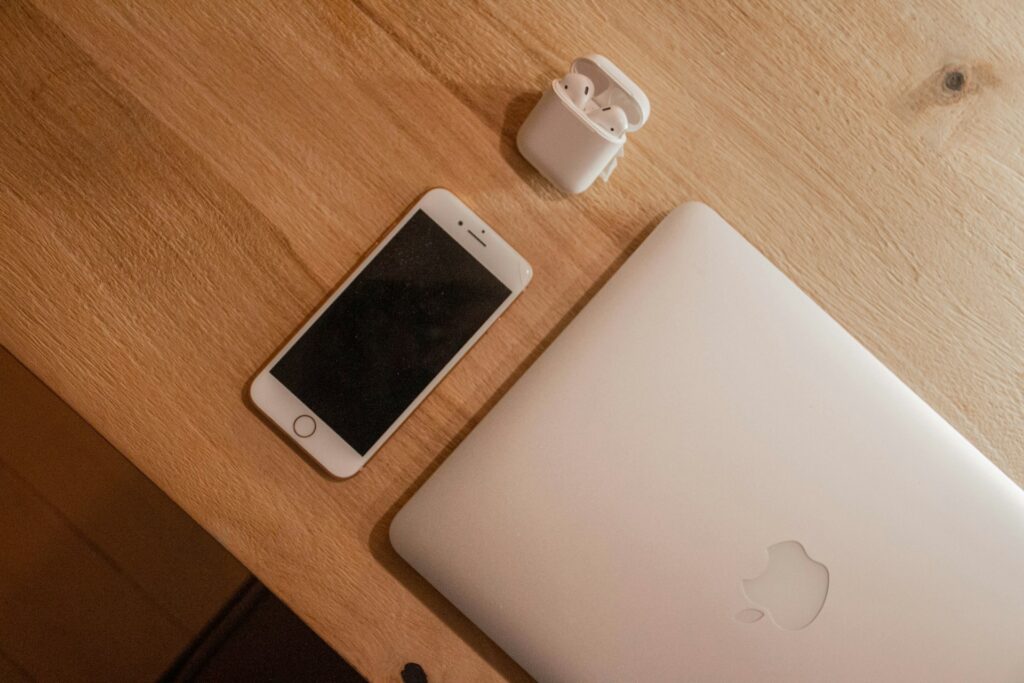You may not notice it, but tech is reshaping how you move, think, and live—one small change at a time. It’s not always flashy. Sometimes it’s subtle, tucked into the apps, devices, and systems you rely on daily.
But over time, these tiny shifts stack up. They influence your choices, change your routines, and reshape your brain’s wiring. Here are 10 ways tech quietly changes how you live without realizing it.
1. You Check Your Phone Without Thinking

Phone pickups have become automatic. Most people check their phones dozens—or even hundreds—of times daily. Notifications, vibrations, and red-dot alerts train your brain to crave micro-rewards.
This habit is called “compulsive checking,” not by accident. Apps are designed to draw you back in. Over time, you don’t even realize you’re doing it. The result? Less focus and a shorter attention span.
2. You Default to GPS, Even When You Know the Way

Navigation apps have made life easier, but they’ve also changed how you remember places. When you use GPS for every trip, your brain stops building mental maps as it used to.
Experts call this “cognitive offloading”—you rely on tech to hold information instead of storing it in your own memory. It’s convenient, sure. But it also means you’re using your spatial memory a lot less.
3. You Text Instead of Talk

Texting has taken over real-time conversation. It feels quicker, easier, and less stressful than making a call. But that shift has downsides too—like missing tone, nuance, and emotional depth.
It’s changed how people handle conflict, express affection, and even flirt. Communication has become more curated and less spontaneous. In some ways, it’s made connections more efficient—and more distant.
4. You Multitask More Than You Think

Tech has made it easy to juggle a dozen things at once. You scroll during meetings, stream shows while emailing, or text while walking. It feels productive, but it’s mostly just divided attention.
Multitasking rewires your brain to crave constant stimulation. That can make it harder to focus on deep work—or even enjoy doing nothing. Your brain starts chasing dopamine hits instead of meaningful progress.
5. You Take More Photos Than You Actually View

Cameras in our pockets have made it easy to document every moment. But snapping a photo can actually distance you from the experience itself. Your brain switches from “experiencing” to “capturing.”
And most of those photos? You’ll never look at them again. The habit creates digital clutter while weakening your memory of the moment. Ironically, it’s possible to remember less by trying to record more.
6. You Rely on Algorithms to Decide What to Watch, Read, or Buy

Whether it’s Netflix, Amazon, or TikTok, algorithms shape your feed. They know your habits better than you do. Over time, this changes your tastes—and limits what you’re exposed to.
You stop browsing and start accepting what’s given. It feels personalized, but it’s also a curated bubble. That means fewer surprises, fewer risks, and more of the same.
7. You Trust Ratings Over Real Recommendations

Five-star reviews now hold more weight than a friend’s opinion. When choosing a restaurant, a hotel, or even a toothbrush, you likely check the rating first.
But online reviews can be manipulated. Fake feedback, bots, and bias are common. Still, the habit of “trust the stars” has become automatic—and it’s reshaping how you judge quality and make choices.
8. You Sleep With Your Phone Nearby

Many people now use their phones as alarm clocks, so they sleep with them inches away. That leads to late-night scrolling, disrupted sleep, and a tough time winding down.
It also turns your bedroom into an extension of the digital world. Notifications in the middle of the night? It’s hard to ignore them. This habit affects rest more than most people realize.
Read More: Augmented Reality Glasses: Are They Finally Worth It?
9. You Expect Instant Gratification

From fast shipping to instant messages, modern tech has shortened your patience. You expect responses, deliveries, and updates now—not later. Waiting feels outdated.
This rewires your expectations. You might get frustrated faster, skip things that take effort, or abandon slow-loading sites. Long-term thinking? It’s harder when everything else feels immediate.
Read More: Haptic Feedback & AI Assistants: The Future of Wearable Gadgets in Everyday Life
10. You Turn to Google for Every Answer

Got a question? You probably Google it without thinking. This habit gives you quick answers but weakens your ability to retain information or think deeply about problems.
It’s another form of cognitive outsourcing. Instead of learning or reflecting, you search and move on. Over time, that chips away at curiosity and confidence in your own knowledge.
Tech has made life smoother, faster, and more connected—but it also comes with trade-offs. The first step to managing the rewiring? Notice it. Once you do, you can choose which habits to keep—and which to reboot.
Read More: 10 Discontinued Tech Products That We Still Miss Today

